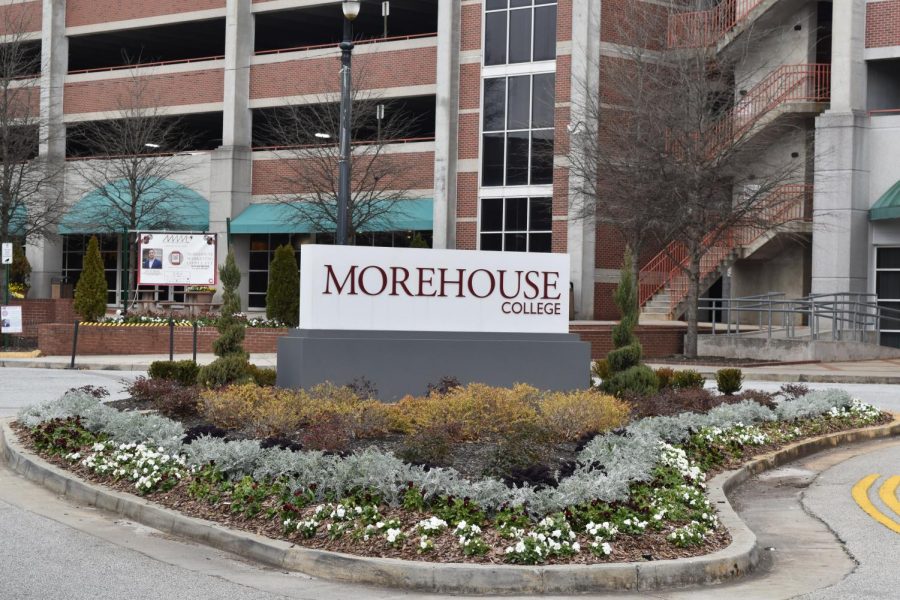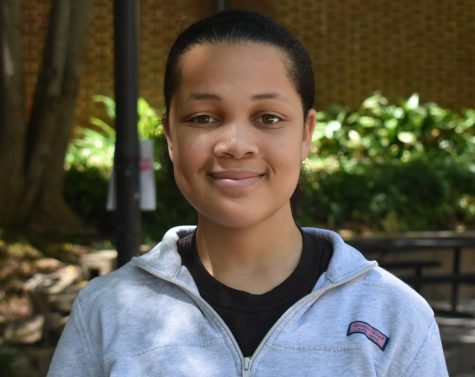Morehouse College to admit male transgender students
COLLEGE ACCEPTANCE: Morehouse College, an all-male Historically Black College in the West End community in Atlanta has adapted its admissions policy to accept transgender men in the the 2020-2021.
March 17, 2020
Morehouse College, an all-male, Historically Black College and University (HBCU) in Atlanta, recently adapted its transgender policy to include all males who self identify as male, a policy which excludes transgender women.
The school’s gender identity policy, known as the “Gender Identity Admissions and Matriculation Policy,” continues to prohibit students who identify as female in order to maintain the school’s all-male identity, according to a news release from the school.
Under this policy, students are expected to self-identify as men throughout their education at Morehouse.
However, some Morehouse and Grady students believe that the policy excludes students who are questioning their gender identity.
Grady senior De’Wan Wright is attending Morehouse in the fall as a football recruit. He agrees that it makes sense to keep the school all-male, citing the historically male school identity.
“I feel that if you are a transgender female and identify yourself as a female, then you don’t fit in the tradition of an all-male school,” Wright said.
Morehouse student Daniel Edwards shares a similar point of view.
“I understand that perhaps at a larger level it was an effort to keep up with changing times and how those certain normative things and how normative culture in itself is changing,” Edwards said.
The policy applies to all students who enroll at Morehouse after the Fall 2020 semester. Students enrolled before the Fall 2020 semester are not subject to this policy.
However, Edwards’ personal experience with the administration caused him to question the ethics and transparency behind the reason the policy was implemented.
During Edwards’ freshman year at Morehouse, he was called into a stakeholder meeting along with other members of the Student Government Association. At the meeting, the stakeholders presented the idea of the new Gender Identity Admissions and Matriculation Policy. The policy, however, raised questions within the LGBTQ+ community at Morehouse.
Morehouse student David Miller, who identifies as a bisexual male, says the policy will “make it hard for specifically the queer community at Morehouse, especially the gender non-conforming and the trans community.”
Such policies like this are things that Grady senior Wyatt Schroeder has to take into consideration while making college decisions. Schroeder self identifies as a male and is in the midst of his transition.
“Trans people are killed for simply being trans, and so, if I know that I’m going to a school that I know is going to wrap me up in a situation where bigotry is, I won’t go there,” Schroeder says.
Miller mostly agrees with Schroeder.
“I do not know how they [people who are not members of the LGBTQ+ community] will react, but I do not feel as though they will react in the best manner, which will not create a safe environment for those [LGBTQ+] individuals,” Miller says.
However, other members of the transgender community at Grady, such as junior Jamie Gray, agree that Morehouse’s new policy is flawed.
“It doesn’t really matter how far along you are in your transition. You are what you identify as,” Gray says.
The policy is not unprecedented. Neighboring Spelman College, an all-female HBCU, began admitting students who self identify as female, regardless of their biological sex in the 2018-19 school year.
In 2017, President Mary Campbell wrote that the college “will consider for admission women students, including students who consistently live and self-identify as women, regardless of their gender assignment at birth.”
“I appreciate the fact that they are trying to be inclusive, but by doing so, they are also being exclusive of other sexualities and sexual orientations,” Madison Quarles, a freshman at Spelman said.
Grady marketing teacher Tony Davis, a 1992 alumnus of Morehouse, believes that the change is not unprecedented and represents an attempt at “keeping with 21st-century ideals as it relates to gender identification.”
“People in the West End community, where Morehouse is located, will definitely have differing opinions based on the history of that area and historical significance of Morehouse College as an all-male institution. Educating the public regarding this matter is going to be key,” Davis said.







